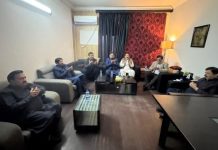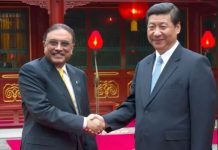UNITED NATIONS, /DNA/ – The “alarming” situation at Ukraine’s Zaporizhzhia nuclear power plant had reached a “grave hour,” the head of U.N.’s nuclear watchdog said Thursday, as he called for an immediate inspection of the facility by international experts.
International Atomic Energy Agency (IAEA) Director General Rafael Mariano Grossi warned that parts of the nuclear plant had been knocked out due to recent attacks, risking an “unacceptable” potential radiation leak.
“IAEA experts believe that there is no immediate threat to nuclear safety,” but “that could change at any moment,” Grossi said.
“These military actions near such a large nuclear facility could lead to very serious consequences,” Grossi told the Security Council at the meeting requested by Russia, that was marked by resounding calls to allow the Agency’s technical experts to visit the area amid mounting safety concerns.
IAEA has been in frequent contact with both Ukraine and Russia to ensure that it has the clearest picture possible of the evolving circumstances.
Providing an overview, the IAEA chief said that on 5 August, the Zaporizhzhia plant – Europe’s largest – was subjected to shelling, which caused several explosions near the electrical switchboard and a power shutdown.
One reactor unit was disconnected from the electrical grid, triggering its emergency protection system and setting generators into operation to ensure power supply.
The senior UN official said that there was also shelling at a nitrogen oxygen station. While firefighters had extinguished the blaze, repairs must still be examined and evaluated.
He recalled his recent address to the ongoing Tenth Review Conference of the Parties to the Nuclear Non-Proliferation Treaty, where he outlined seven indispensable pillars that are critical for nuclear safety and security.
These included aspects dealing with the physical integrity of the plant, off-site power supply, cooling systems, and emergency preparedness measures.
“All these pillars have been compromised if not entirely violated at one point or another during this crisis,” flagged the IAEA chief.
“Any nuclear catastrophe would be unacceptable and thus preventing it should be our overarching goal”.
He asked both sides to cooperate with the UN atomic agency.
“This is a serious hour, a grave hour, and the IAEA must be allowed to conduct its mission in Zaporizhzhia as soon as possible”.
Presenting his case, the Russian delegate said Ukrainian forces used heavy artillery against Zaporizhzhia on 5 August, shelling the plant during a shift change to intimidate staff – their own citizens.
He upheld that on 6 August, those forces attacked with cluster munitions, and on 7 August, a power surge occurred, blaming.
The Russian Ambassador blamed Kyiv for refusing to sign a trilateral document issued by IAEA, stressing that Moscow strictly complies with the IAEA Director General’s seven principles.

















